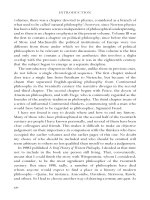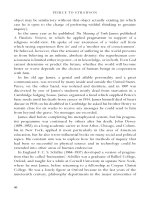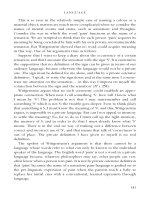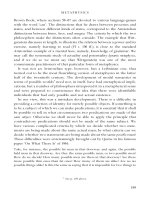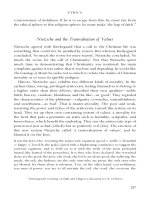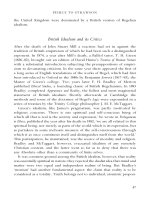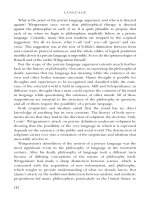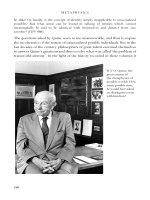Philosophy in the modern world a new history of western philosophy, volume 4 (new history of western philosophy) ( PDFDrive ) (1) 286
Bạn đang xem bản rút gọn của tài liệu. Xem và tải ngay bản đầy đủ của tài liệu tại đây (22.43 KB, 1 trang )
11
Political Philosophy
Utilitarianism and Liberalism
n introducing his greatest happiness principle, Bentham was less
concerned to provide a criterion for individual moral choices than to
offer guidance to rulers and legislators on the management of communities. But it is precisely in this area, when we have to consider not just the
total quantity of happiness in a community but also its distribution, that
the greatest happiness principle, on its own, fails to provide a credible
decision procedure.
Suppose that, by whatever means, we have succeeded in establishing a
scale for the measurement of happiness: a scale from 0 to 10 on which
0 represents maximum misery, 10 represents maximum happiness, and 5
a state of indifference. Imagine that we are devising political and legal
institutions for a society, and that we have a choice between implementing
two models. The result of adopting model A will be that 60 per cent of the
population will score 6, and 40 per cent will score 4. The result of adopting
model B will be that 80 per cent of the population will score 10 and 20 per
cent will score 0. Faced with such a choice, anyone with a care for either
equality or humanity will surely wish to implement model A rather than
model B. Yet if we operate Bentham’s felicific calculus in the obvious
manner, model A scores only 520 points, while model B achieves a total
of 800.
The principle that we should seek the greatest happiness of the greatest
number clearly leads to different results depending on whether we opt to
maximize happiness or to maximize the number of happy people. The
principle needs, at the very least, to be supplemented by some limits on the
I
